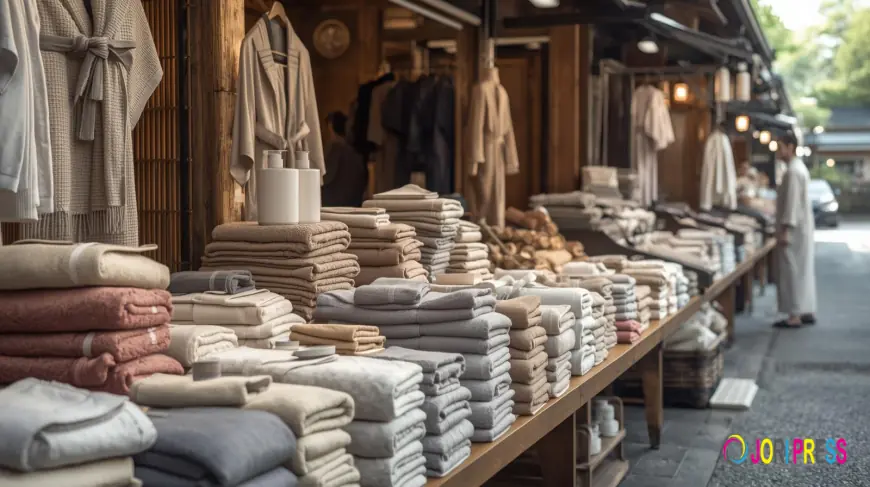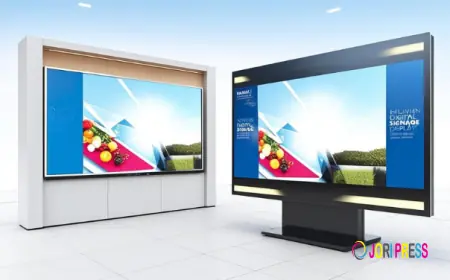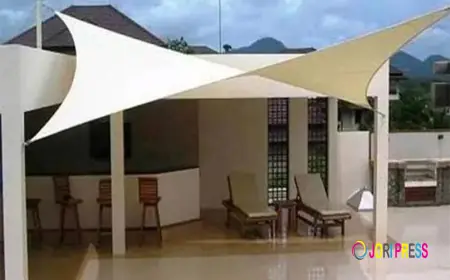Japan Bath Linen Market Growth, Size, Trends, and Forecast 2025-2033
The Japan bath linen market size reached USD 581.54 Million in 2024. Looking forward, IMARC Group expects the market to reach USD 853.85 Million by 2033, exhibiting a growth rate (CAGR) of 4.36% during 2025-2033.

Japan Bath Linen Market Size and Growth Overview (2025-2033)
Market Size in 2024: USD 581.54 Million
Market Forecast in 2033: USD 853.85 Million
Market Growth Rate 2025-2033: 4.36%
According to IMARC Group's latest research publication, "Japan Bath Linen Market: Industry Trends, Share, Size, Growth, Opportunity and Forecast 2025-2033", the Japan bath linen market size reached USD 581.54 Million in 2024. Looking forward, IMARC Group expects the market to reach USD 853.85 Million by 2033, exhibiting a growth rate (CAGR) of 4.36% during 2025-2033.
How AI is Reshaping the Future of the Japan Bath Linen Market?
Artificial intelligence (AI) has meaningful importance in the Japanese bath linen industry, and is applied in marketing, manufacturing processes, quality, and customer personalization. AI systems inspect fabrics during production for the tiniest defect, often invisible to the human eye, helping ensure quality in towels and bath mats. Machine learning algorithms analyze consumer behavior for the prediction of popular colors, textures, and styles to create products to match expected demand. Smart inventory techniques powered by AI can help cut excess inventory and streamline supply chains. This makes it of more importance for artisanal brands like Imabari towels to balance tradition and efficiency.
Some retailers use AI recommendation engine software to recommend bath linens to consumers based on lifestyle, shopping history, and consumer preferences and demands (e.g,. sensitive skin, environmentalism). Retailers have also adopted virtual fabric simulation technology, which can allow consumers to see the look and feel of a product before it is purchased, a problem that has been limiting e-commerce. Predictive analytics also help to understand seasonal fluctuations and regional consumer preferences within Japan's idiosyncratic markets. Artificial intelligence also plays a role in sustainable product creation, such as calculating effective dye combinations, minimizing water use, and sourcing alternative materials that match Japanese consumers' luxury expectations.
In customer service, AI chatbots are employed to immediately answer questions about product details, garment care, and product recommendations in Japanese. Thanks to natural language processing models, AI chatbots can effectively answer questions about fabric composition, hypoallergenic properties, and how to care for garments in detail. Artificial intelligence also enables dynamic pricing strategies in which the brand establishment and prices of bath linens can be regularly revised based on macro- and micro-market circumstances. In Japan, where the bath linen market's growth factors include quality, sustainability, and innovation, artificial intelligence allows customary manufacturers to modernize their operations while preserving the artisan standards of craftsmanship, quality, and attention to detail.
Japan Bath Linen Market Trends & Drivers
Japan's bath linen market will remain strong, helped by the tendency of the country's elderly population to purchase linen that focuses on health, comfort, and hygiene. Antibacterial, hypoallergenic, and quick-dry products that are comfortable and less irritating to the skin are likely to thrive. As the potential audience continues to grow, demand for therapeutic or luxury bath linens, such as eco-friendly organic cotton items or linens with textures that promote relaxation and wellness, anti-slip bath mats, and low-maintenance towels is also projected to grow. Additionally, the desire and need for accessibility products and a preference for high-quality items may also support this projected growth and premiumization.
Many Japanese consumers consider quality, craftsmanship, and attention to detail important factors when making their purchases. Buyers of bath linen are willing to pay more for organic cotton, bamboo, and linen products, particularly when these natural materials are manufactured using either environmentally friendly or highly skilled methods of production. Popular domestic names such as Imabari towels are known for their softness and absorption, and are in the premium range. As manufacturing has focused on quality and environmental aspects, several bath linen brands have emerged that focus on high environmental standards through organic materials, natural dyes, and open sourcing of information. As eco-luxury has become a desirable, aspirational niche market, manufacturers have combined customary quality with green technologies, and bath linen is marketed as a lifestyle accessory that can act as a reflection of personal values.
Japan Bath Linen Industry Segmentation:
The report has segmented the industry into the following categories:
Type Insights:
- Bed Use
- Bath Use
Application Insights:
- Home
- Hotel
- Salon
Regional Insights:
- Kanto Region
- Kansai/Kinki Region
- Central/Chubu Region
- Kyushu-Okinawa Region
- Tohoku Region
- Chugoku Region
- Hokkaido Region
- Shikoku Region
Competitive Landscape:
The market research report offers an in-depth analysis of the competitive landscape, covering market structure, key player positioning, top winning strategies, a competitive dashboard, and a company evaluation quadrant. Additionally, detailed profiles of all major companies are included.
Recent News and Developments in Japan Bath Linen Market
September 2024: Leading Japanese textile manufacturers announced collaborations with biotechnology firms to develop next-generation antimicrobial bath linens using naturally derived compounds, in response to heightened hygiene awareness following the pandemic.
August 2024: Imabari towel producers introduced a new collection featuring carbon-neutral manufacturing processes, utilizing renewable energy sources and recycled water systems, aligning with Japan's environmental sustainability targets.
October 2024: Major hospitality chains in Tokyo and Osaka upgraded their bath linen standards, partnering with premium domestic suppliers to offer guests organic cotton towels and bamboo fiber bath mats as part of luxury wellness initiatives.
Future Outlook
Key highlights of the Report:
- Market Performance (2019-2024)
- Market Outlook (2025-2033)
- COVID-19 Impact on the Market
- Porter's Five Forces Analysis
- Strategic Recommendations
- Historical, Current and Future Market Trends
- Market Drivers and Success Factors
- SWOT Analysis
- Structure of the Market
- Value Chain Analysis
- Comprehensive Mapping of the Competitive Landscape
Note: If you require specific details, data, or insights that are not currently included in the scope of this report, we are happy to accommodate your request. As part of our customization service, we will gather and provide the additional information you need, tailored to your specific requirements. Please let us know your exact needs, and we will ensure the report is updated accordingly to meet your expectations.
About Us:
IMARC Group is a global management consulting firm that helps the world's most ambitious changemakers to create a lasting impact. The company provides a comprehensive suite of market entry and expansion services. IMARC offerings include thorough market assessment, feasibility studies, company incorporation assistance, factory setup support, regulatory approvals and licensing navigation, branding, marketing and sales strategies, competitive landscape and benchmarking analyses, pricing and cost research, and procurement research.
Contact Us:
Street: 563-13 Kamien
Area: Iwata
Country: Tokyo, Japan
Postal Code: 4380111
Email: [email protected]
What's Your Reaction?
 Like
0
Like
0
 Dislike
0
Dislike
0
 Love
0
Love
0
 Funny
0
Funny
0
 Angry
0
Angry
0
 Sad
0
Sad
0
 Wow
0
Wow
0


















































